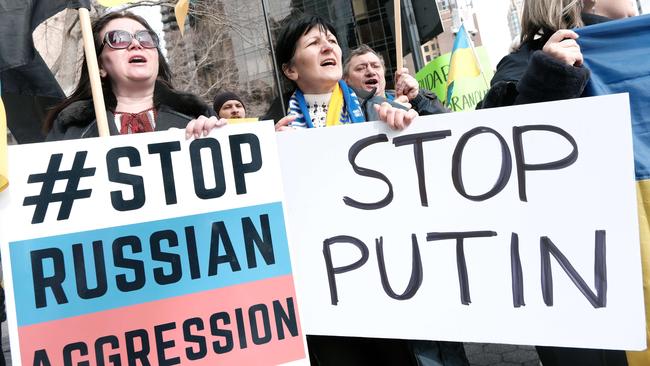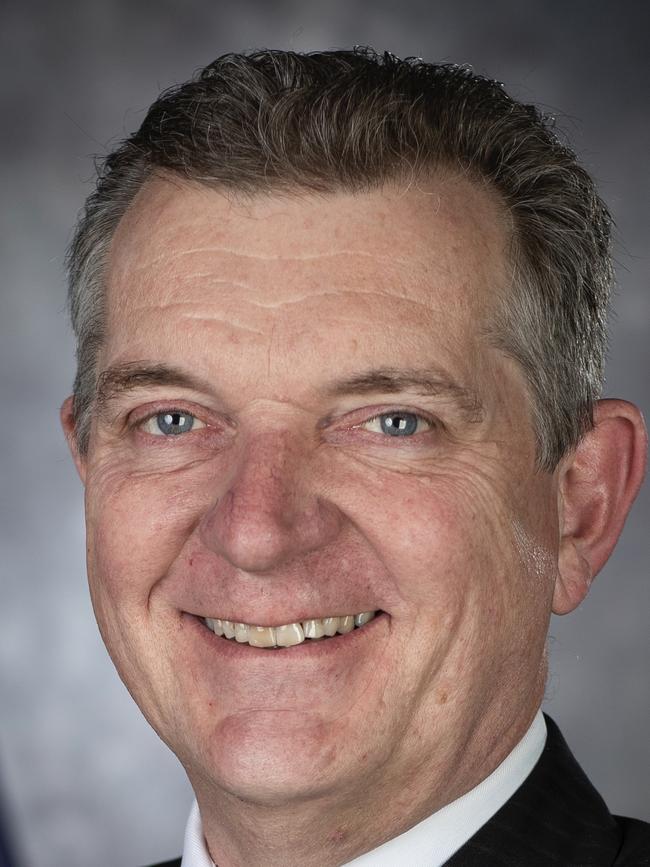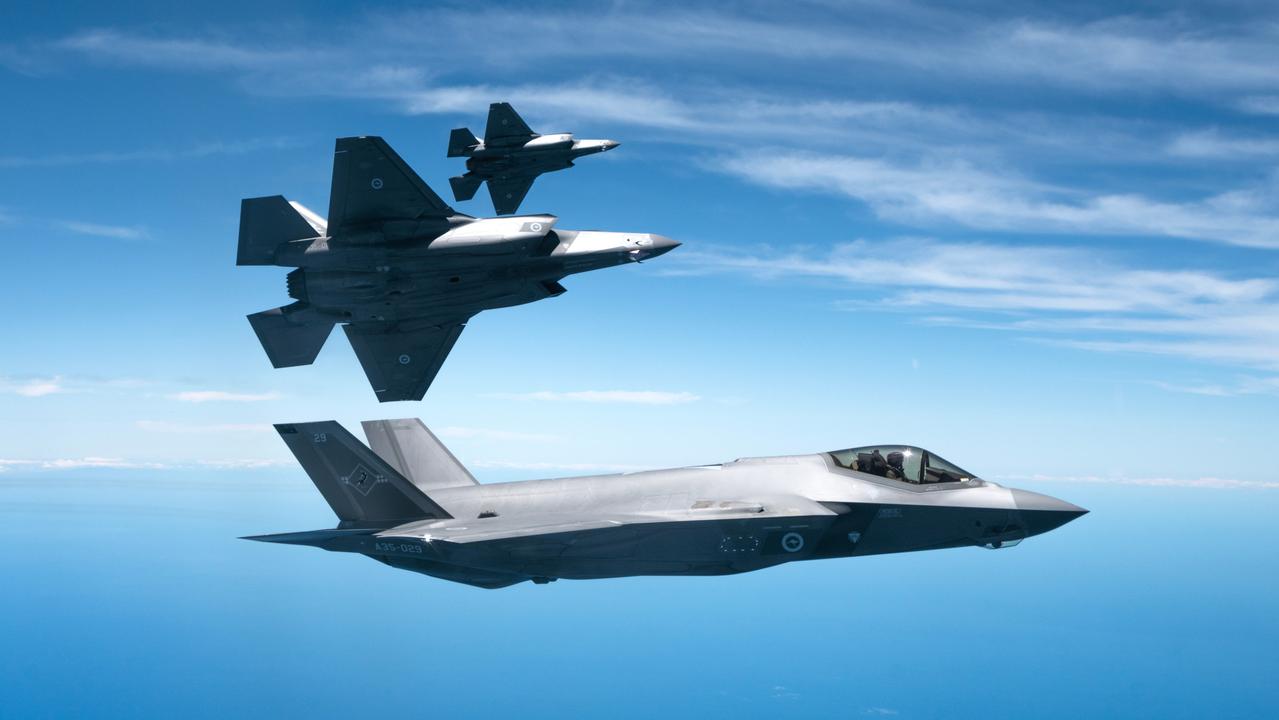Support for Ukraine must be continued
Australia cannot be an indifferent bystander when Russia assaults the system of international security of which it is both an architect and guarantor.

Twenty months on, Russian President Vladimir Putin’s war of choice against Ukraine still matters to Australia globally, regionally, and nationally, both as a matter of principle and of self-interest. It requires our continuing support for the nation whose sovereignty and freedom to choose its own future the Kremlin seeks to extinguish.
Australia cannot be an indifferent bystander when Russia assaults the system of international security of which it is both an architect and guarantor. Despite asserting the primacy of the UN charter, Russia flouts its obligations and abuses its privileges as a veto-wielding permanent member of the UN Security Council.
Russia has proved the brittleness of its word, repeatedly breaching its commitment in the 1994 Budapest Memorandum “to respect the independence and sovereignty and existing borders of Ukraine” and its “obligation to refrain from the threat or use of force” against Ukraine’s territorial integrity or independence. It made similar commitments in the 1997 bilateral Treaty on Friendship, Co-operation and Partnership.

Lacking the intent or capacity to impose our will upon others, Australia by history, inclination, and national interest is invested in the UN system, imperfect though it is. As president of the third UN General Assembly in 1948-49, foreign minister “Doc” Evatt was instrumental in the drafting and unanimous adoption of the UN Charter of Human Rights, which Russian military and mercenary boots have trampled in Bucha and elsewhere in Ukraine.
International co-operation via the UN framework underpins strategic stability, nuclear security and non-proliferation, and seeks to redress global poverty and disadvantage. Presuming that its tenuous claim to great power status grants it impunity for its actions, Russia has confronted the world with its callous weaponisation of food and energy security, blocking Ukrainian grain exports, including to developing countries whose interests Russia professes to champion, and cynically leveraging gas supplies to Europe and other countries.
One of five designated Nuclear Weapons States under the Nuclear Non-Proliferation Treaty, Russia bears heavy responsibilities for nuclear non-proliferation, safety, and disarmament. Yet Putin repeatedly and casually muses about using nuclear weapons either in, or as a consequence of, his war in Ukraine.
Russia and Australia are members of multilateral non-proliferation frameworks like the Nuclear Suppliers’ Group, the Missile Technology Control Regime, and the Wassenaar Arrangement (covering conventional arms and sensitive dual-use items). The efficacy of these entities in enabling legitimate commercial trade while curbing the growth of military capabilities is compromised by Russia’s growing obstruction of international collaboration.
Regionally, Russia matters to Australia directly and indirectly. Thirty years ago, in the Department of Foreign Affairs and Trade, we coined the term “Pacific Russia” to remind Canberra’s decision-makers that the “Russian Far East”, as it then was known, was part of our own region. The ballistic nuclear missile-equipped submarines of Russia’s Pacific Fleet remain based in Vladivostok. When Australia hosted the G20 in 2014, a Russian naval squadron deployed off Queensland. Russia has flown long-range bombers to the Indonesian archipelago and has engaged in increasingly complex joint air force activities with China.
Routing Russian forces in Ukraine and ensuring the survival of democracy there would constitute a genuine strategic defeat for the Kremlin and its twisted narrative about the decadence and moral turpitude of the West
Russia and Australia are in the G20, APEC and participate in ASEAN forums, including the East Asia Summit on regional security. Russia matters to Indo-Pacific countries that matter to us, like China, Japan, the Republic of Korea, India, and Vietnam. Recent contact between the leaders and militaries of Russia and the DPRK alarmingly portends supply by the DPRK of weapons to Russia, notwithstanding UN Security Council sanctions against the DPRK, which Russia has supported.
Nationally, Moscow sees us as an “unfriendly country”, de facto at war for years because we oppose Russia’s methods of promoting its national interests, we pursue justice for the victims of MH17, and because we have imposed sanctions against Russians and their interests in Australia following Russia’s illegal annexation of Crimea, its military actions in Donbas, and its invasion of Ukraine. Russian intelligence services have been active in Australia, and AUKUS only heightens their interest in us.
Moscow has become more sophisticated in exploiting Western societies’ plurality and contestability of public opinion, freedom of expression and of the media. The Kremlin uses disinformation to undermine trust and confidence in our sociopolitical institutions, sowing doubt and fomenting disharmony.
Cynics say that all countries sometimes bend or ignore the rules if they think they can get away with it. This moralising “whataboutism” is the first resort for Putin’s proteges, who point to US sins of omission and commission to vindicate Russia’s own egregious policies and actions.
Out of either conviction or contrarianism, these Kremlin boosters ignore the vital difference between the two systems, namely “accountability”. Putin and his personalised system of power is accountable to no one so long as he sates the appetites of his competing vassals. But western politicians must contend with genuine elections, an independent judiciary, free and inquisitive media, a querulous party room, and an opposition government-in-waiting.
The Kremlin claims that talk of ensuring Russia’s “strategic defeat” in Ukraine is evidence that the West seeks to dismantle or destroy Russia.
This is nonsense unsupported by fact. It exemplifies the suspicious world view of a system which defines itself in confrontational terms.
What is true, however, is that routing Russian forces in Ukraine and ensuring the survival of democracy there would constitute a genuine strategic defeat for the Kremlin and its twisted narrative about the decadence and moral turpitude of the West.
After all, if democracy can prevail in Ukraine, why not also in Russia?
-
Peter Tesch served as deputy secretary for strategy, policy, and industry in the Defence Department from 2019-22. A career diplomat, his postings included ambassador to the Russian Federation (2016-19), and ambassador to Germany (2009-13)


